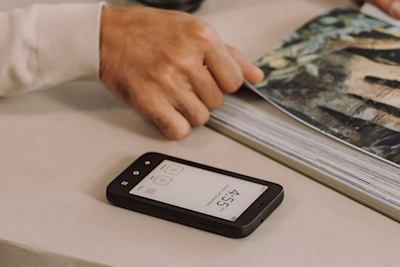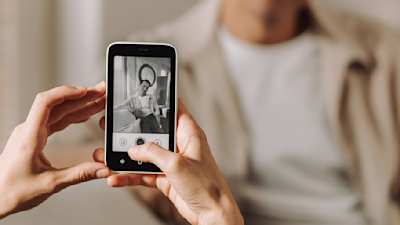
Digital Detox Mini-Guide
Can you imagine a day without technology? Can you imagine having to deliberately turn off your mobile phone, computer or tablet in order to focus on the real world, without checking Facebook, emails or the news. At a time when technology becomes ubiquitous, there’s a trend starting to emerge, the digital detox. Digital detoxes aren’t new, they’ve been around for a while but it’s only in recent years that we’ve noticed a significant rise in people searching for ways to disconnect. We spend so much time online that living an authentic offline life has become a luxury.
Our obsessive relationship with technology
Internet addiction and problematic use is a growing problem nowadays.[1] The majority of us are almost constantly online, struggling to break away from our mobile devices when at work, school, home or even on holiday. We have become voluntary archivists, perpetually documenting our lives for the entertainment of others and to preserve memories for ourselves. However, not living in the present moment, or simply living our lives through a screen, may be overwhelming us.
Daytime fatigue, sleepless nights, bad posture, muscles cramps, and eye strain are only some of the ways technology overuse affects us. Technology invades almost every aspect of our lives. It affects our health, well-being and our relationships with others. That’s why more people are discussing and considering digital detoxes.[2] There’s a shared longing, especially amongst those who spend the most time online, for a conscious break from electronic devices.
What is it all about? - digital detox meaning
The term ‘detox’ is often associated with pseudoscience and weight loss, e.g. tea that makes you go to the toilet more. Forget all that. A ‘detox’ is simply a period of time in which one abstains from something unhealthy, in this case electronic devices. There are several ways you can start your digital detox, depending on how often you use your device. It’s not advised to go ‘cold turkey’ and just disappear if you’re a heavy social media user, this can often be cause for concern. The information and stimuli that we’re exposed to in the virtual world overwhelm us far more than we realise. If you spend a lot of time online and you’re about to spend a lot of time offline, it’s a good idea to let people know in advance. Especially if it will be difficult for friends and family to get hold of you.
Most people decide on a gradual disconnection from the online world, which is recommended. Start by spending a couple of hours a day without your phone, or maybe more specifically without social media. Then, try to survive without it more often. Set challenges for yourself, see if you can go a whole day without using it. If you’re on holiday, try a whole week. Attempt to live your life in the present moment and see if it makes a difference. Think of this experience as an experiment, you’re a scientist researching your own life and trying to find the cure that will make the most of your time. You could even reward yourself for going without your phone for a certain amount of time, e.g. every Saturday for a month leave your phone at home and do something you wouldn’t usually do, try a new restaurant, see a concert or film, visit an exhibition or go somewhere you’ve never been before etc. There are so many possibilities.
Another idea would be to go on holiday and give up using electronic devices completely during the day by leaving them in the hotel (ideally in a safe if possible) or even at home (if you’re travelling somewhere that isn’t too far away or for a shorter length of time). We all tend to use the internet to entertain ourselves so refraining from using something as obvious as your smartphone isn’t as simple as it might seem in the beginning.
Imagine you’re abroad and you leave your phone at the hotel, you now have no GPS, Google Translate or currency converter so you’ll need to remember to pack a traditional map, phrase book and maybe even a calculator! Did you know there are digital detox camps and retreats? They’re a great idea if you want to fight your attachment to mobile devices and spend more time offline when your willpower is weak. You’ll have the support of everyone involved so the whole process won’t feel as lonely.
Several movements have sprung up online, communities such the one run by Mudita, as well as subreddits such as r/nosurf, r/digitalminimalism, r/digitaldetox and r/simpleliving. These are all places where you can get ideas on how to live your life offline, or ‘in real life’, sometimes shortened to ‘IRL’. The problem with using the phrase ‘IRL’ is that it implies being offline is not real life, when in reality, it is. Your real time is being wasted online rather than it being used however you’d like offline.
Digital detox benefits
You might think that a few days without your phone or a computer won’t change your life in any way. How will you really know if that’s true unless you try it? Your attitude towards technology might change, you might notice more often when you have your phone at the dinner table or when you take it out during a conversation with another person. When you realize that you can live without looking at your phone every ten minutes, you might start to appreciate the world around you more.
How to do a digital detox? - 3 simple steps
For many of us, it’s impossible to disconnect from the online world completely but we can work on some of our bad habits in order to improve our relationship with technology.
Don’t use your smartphone, laptop or tablet before bedtime. The last half an hour before going to sleep should be a time to wind down. Read a book instead of scrolling.
Choose a time during the day that will always be free from your phone. A very good idea is not to use your smartphone during mealtimes or while you’re in the bathroom.
Treat yourself to a weekend digital detox from time to time. Take a long walk, cook something, visit friends and family. Focus on real things, in the real world, with real people.
Are you a little bit intrigued by the prospect of a digital detox?
Choose the real world instead of the virtual one. Life without constant access to the internet is possible and it has more advantages than you can imagine.
Start today, you won’t regret it!
The advice in this post is only a guide and should be considered as such. If you, or anyone you know is struggling with more serious internet, gaming or similar addictions, you can seek help via our community, or via the links below. Is there anything you’d like to add, have we missed anything? If you’re interested in sharing your experiences with us or writing a guest post for us, send us an email via hello@mudita.com!
Please feel free to get in touch via social media (send us some photos or videos too), you can find us on Facebook, Twitter and Instagram, let’s connect! To learn more about Mudita, take a look at our website and our other posts.
If you enjoyed reading this article, please share and recommend it!
Related stories

How to Reclaim Control in the Attention Economy
IQ scores are declining and it looks like our screen habits may be to blame. Learn how the attention economy affects your mind and how mindful tech can help.

It’s official! Kompakt is now shipping to North American Backers
The North America Optimized Mudita Kompakt, our minimalist phone designed for mindful living, is now shipping. See what to expect and how to track your order.

How to Get a Better Tech-Life Balance
Learn practical strategies to reduce screen time & achieve tech-life balance through actionable tips for digital wellness & create healthier technology habits.
If you'd like to receive the best stories from our blog, keep up to date with our progress and get notified about our product releases and special discounts.